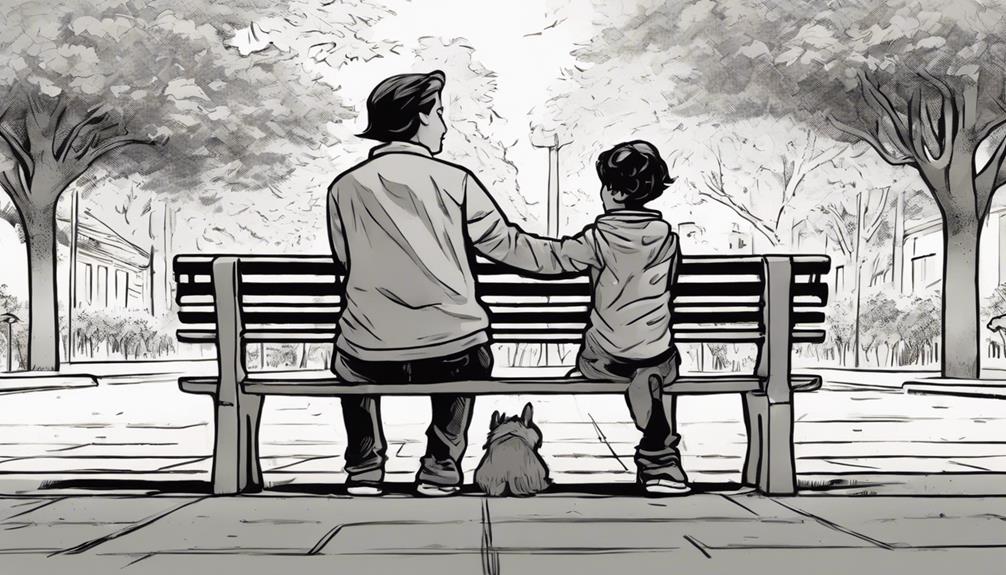When talking to kids about divorce, make sure both parents are present, arrange custody, and have a plan. Tailor your approach based on their age, using simple language for young ones and detailed explanations for teens. Monitor mental health, offer reassurance, and avoid negative talk about the other parent. Watch for emotional responses, as kids may blame themselves. Seek help if needed. Explore resources like Daddydivorce for guidance, Divorce Advice for tips, and Modern Parenting Dynamics for co-parenting strategies. Being sensitive and prepared is essential for their well-being and understanding.
Key Takeaways
- Ensure both parents are present for the conversation.
- Tailor the approach based on the child's age.
- Monitor and support children's emotional well-being.
- Reassure children consistently and avoid negative talk.
- Seek professional help if needed for children's mental health.
Timing and Preparation for the Conversation
Before talking to your child about divorce, make sure that both parents are present and have made arrangements regarding child custody and living arrangements. It's vital to have a plan in place before having this conversation.
Make certain that you and your partner are on the same page about how things will work moving forward. Having a clear understanding of child custody, living situations, and visitation schedules will help provide stability for your child during this challenging time.
Take the time to discuss these arrangements together before sitting down with your child. This preparation can help make the conversation smoother and less confusing for your child as they navigate the changes ahead.
Adapting to Different Age Groups
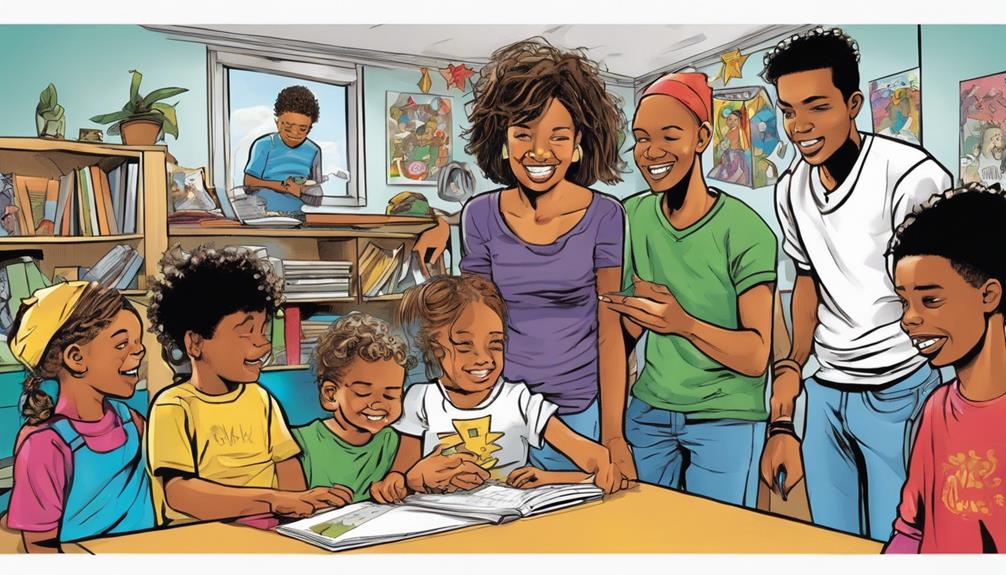
Consider tailoring your approach based on the age of your child when talking to them about divorce. For young children, use simple language and reassure them of your love.
Teens may need a more detailed explanation and could have intense emotional responses. Encourage open dialogue with teenagers to address their concerns. Regardless of age, emphasize that they're supported and cared for.
Younger kids might feel guilty, while teens may struggle with anger or sadness. Be prepared for behavioral changes like withdrawal or disobedience. Reassure them that their feelings are normal.
Supporting children through divorce means understanding and adapting to their different emotional needs based on their age.
Support and Emotional Well-being
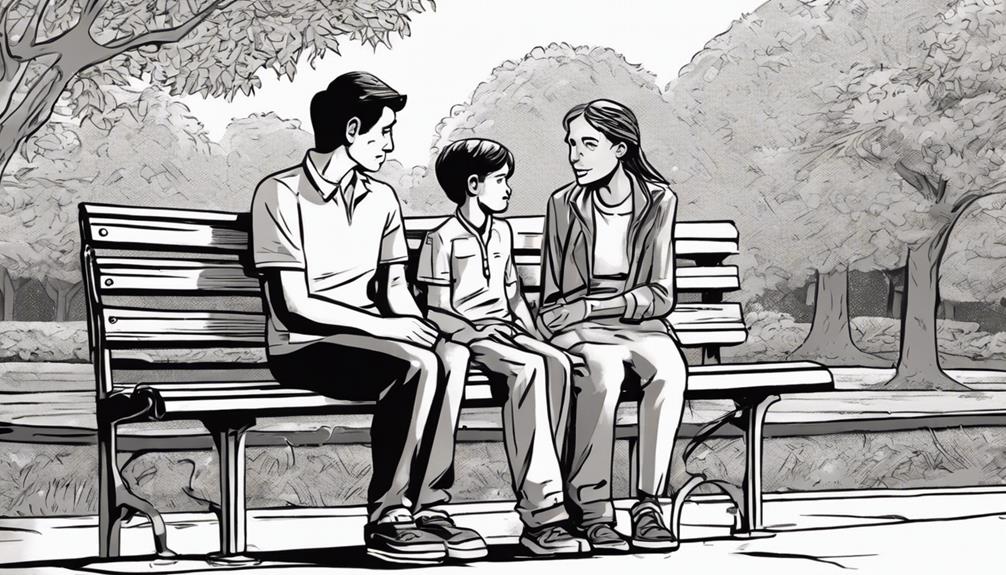
Monitor your child's mental and emotional health for signs of grief post-separation. It's essential to be attentive to any changes in behavior or mood. If you notice your child struggling, consider seeking support or counseling to help them navigate this challenging time. Remember to offer reassurance and support consistently. Avoid speaking negatively about the other parent to prevent your child from feeling torn between you. Additionally, create a supportive network involving family members to provide comfort and stability. Here's a helpful table to guide you through supporting your child's emotional well-being:
| Support Strategies | Emotional Well-being |
|---|---|
| Monitor mental health | Seek support if required |
| Offer reassurance | Avoid negative talk |
| Create a support network | Provide stability |
Understanding Children's Reactions and Needs
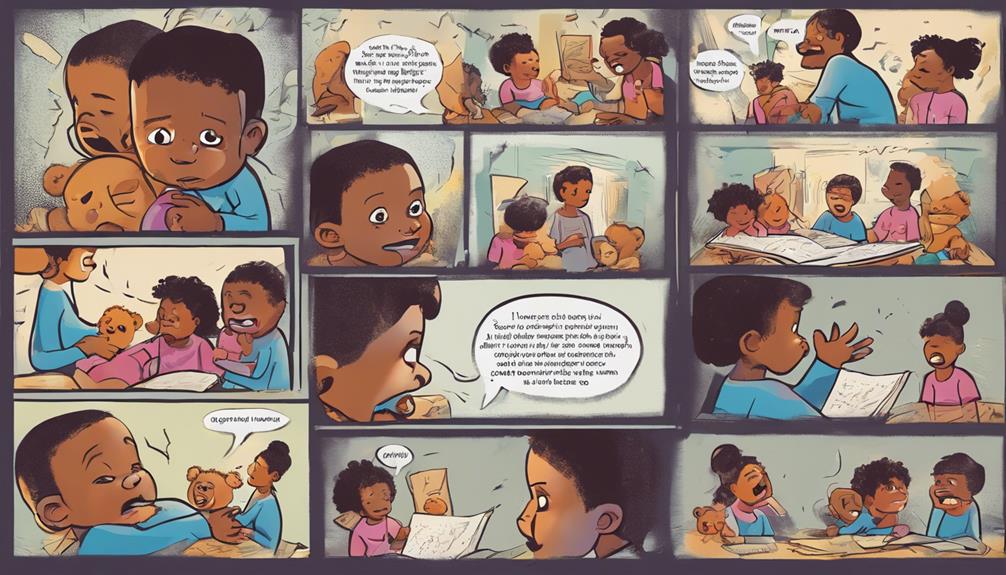
To better understand how your children may react and what they need during and after a divorce, pay attention to their emotional responses and behaviors.
Children may blame themselves for the divorce, especially younger kids. Divorce can impact children's mental health in various ways, leading to feelings of guilt, insecurity, or being unloved.
Watch out for behavioral changes like bed-wetting, disobedience, or withdrawal, as these can be signs of distress. It's important to reassure your children that their feelings are normal and that seeking professional help if needed is okay.
Additional Resources and Support
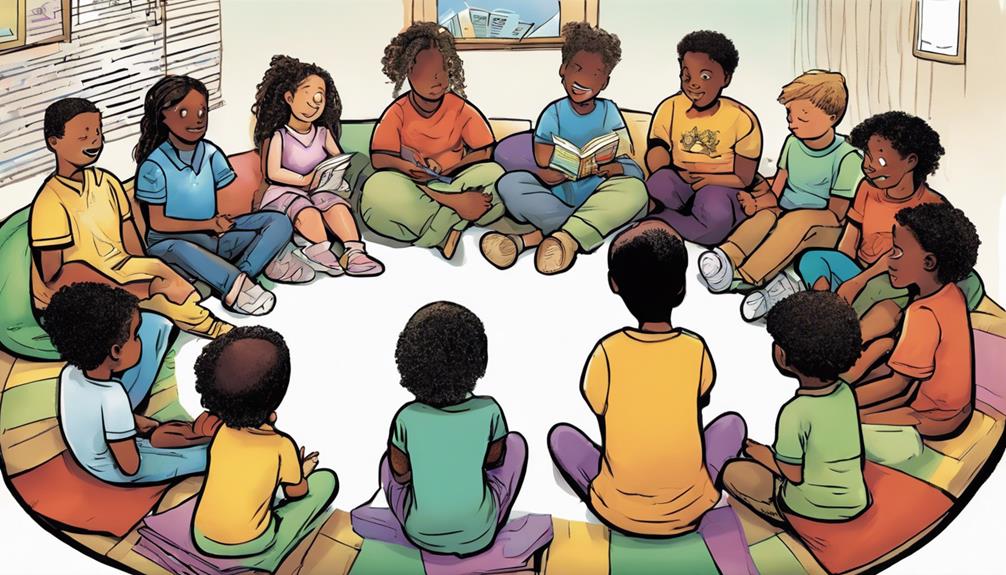
Explore available resources and support networks to enhance your understanding and traverse the complexities of divorce with your children.
Here are three valuable resources to assist you:
- Daddydivorce: A platform offering guidance and support tailored to fathers going through divorce.
- Divorce Advice: A source providing expert advice and tips on maneuvering the challenges of divorce for both parents and children.
- Modern Parenting Dynamics: Access information on co-parenting strategies, parenting challenges, and relationship improvement to help you support your children during this shift.
Frequently Asked Questions
How Can We Maintain a Sense of Stability for Our Children During the Divorce Process?
Maintain stability for your children during divorce by keeping routines consistent, providing reassurance, and listening to their feelings. Avoid conflict in front of them, encourage open communication, and seek support if needed to help them adjust positively.
Should We Involve Our Children in Decision-Making Regarding Custody Arrangements?
You should involve your children in decision-making regarding custody arrangements, ensuring their voices are heard and feelings considered. This can provide a sense of stability and security, helping them adjust to the changes.
How Do We Handle Extended Family Members' Questions About the Divorce Around Our Children?
When relatives ask about the divorce around your kids, calmly but firmly redirect the conversation to a neutral topic. Guarantee your children feel supported and shielded from unnecessary details or conflict, maintaining a safe and secure environment for them.
Is It Normal for Children to Experience a Range of Emotions Even After the Initial Conversation?
Yes, it's normal for children to feel a mix of emotions even after the initial divorce talk. Keep communication open, offer support, and consider seeking professional help if needed. Remember, their feelings are valid and it's okay to seek help.
What Are Some Practical Ways to Help Children Adjust to Living in Two Separate Homes?
When helping your child adjust to two homes, establish consistent routines, encourage open communication, and maintain a positive co-parenting relationship. Create a comforting space in each home and reassure them of your love and support.
Conclusion
In the delicate dance of discussing divorce with your children, remember to tread lightly on their fragile hearts. Timing is your partner, preparation your armor, and support your shield.
Adapt to their age, understand their reactions, and provide the emotional scaffolding they need. Seek out resources, lean on support, and above all, communicate openly and love fiercely.
Through this storm, guide them with care and compassion, for in the depths of difficulty lies the seed of resilience.

